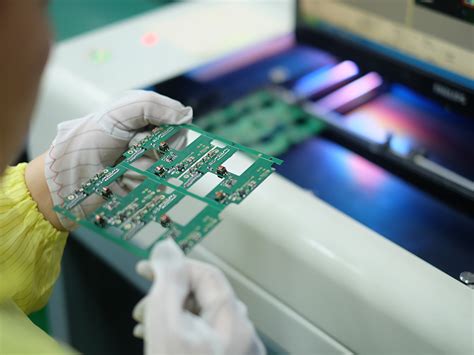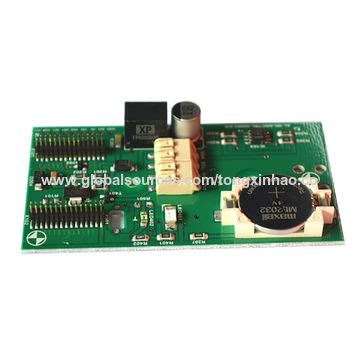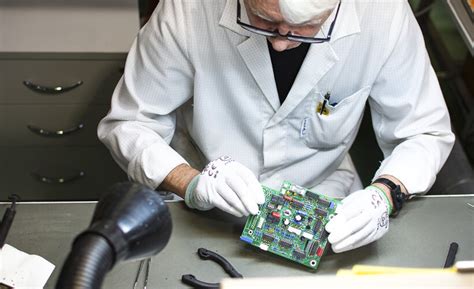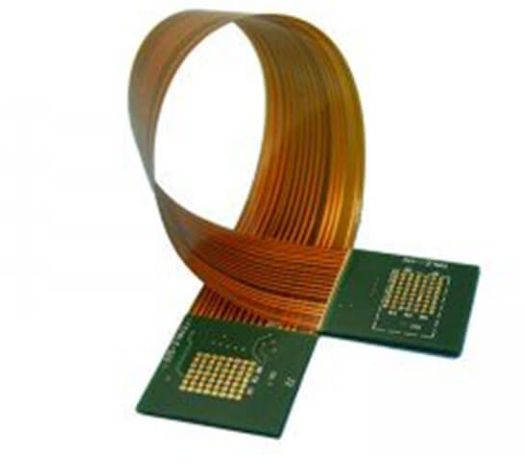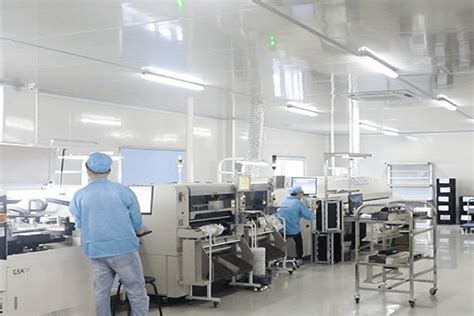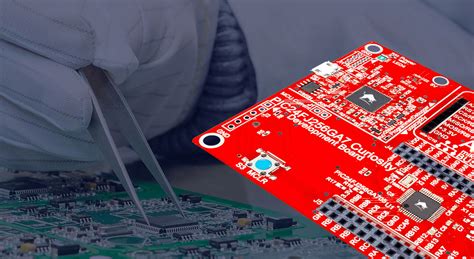Unlocking Innovation: Your Guide to Choosing the Right Custom PCB Manufacturer
Key Takeaways
When selecting a custom PCB manufacturer, it’s crucial to understand how their manufacturing capabilities align with your unique needs. A well-rounded pcb manufacturing company will not only have cutting-edge technology but also demonstrate expertise in various production techniques. It’s important to prioritize material quality as it directly impacts the durability and functionality of your designs. Look for manufacturers who utilize high-grade materials and adhere to stringent quality controls in their pcb manufacturing business. Additionally, evaluating the pcb manufacturing cost is vital; while you want a competitive price, it shouldn’t come at the expense of quality. Inquire about turnaround times, as they can affect your project’s timeline significantly. Understanding the certifications that your chosen manufacturer holds is also essential, ensuring that they meet industry standards for excellence. By making informed decisions based on these factors, you can build a reliable partnership that fosters innovation in your projects, helping you navigate the complexities of the industry effectively.
Understanding the Role of a Custom PCB Manufacturer
In the realm of pcb manufacturing, the role of a custom PCB manufacturer extends far beyond merely producing circuit boards. These manufacturers act as vital partners in transforming your ideas into tangible products by providing specialized knowledge and technology essential for creating high-quality printed circuit boards. When you engage with pcb manufacturing companies, you are not just seeking a supplier; you are looking for an expert that understands the unique requirements of your projects. They offer a wide array of manufacturing capabilities that can accommodate various designs, complexities, and volumes, allowing you to select the right partner based on your specific needs.
Here are some critical factors to consider when evaluating potential manufacturing partners:
| Factor | Description |
|---|---|
| Manufacturing Processes | Different processes such as surface mount technology (SMT) or through-hole. |
| Technology | Access to modern equipment and advanced techniques like automated assembly. |
| Expertise | A proven track record in your specific field or project type. |
| Flexibility | Ability to handle changes in design or scale production as needed. |
Moreover, understanding pcb manufacturing cost is crucial as it directly impacts your budget and project timeline. A reliable manufacturer should provide transparency regarding pricing structures while maintaining high standards of quality throughout their production processes. The success of your pcb manufacturing business heavily relies on these partnerships, so take the time to meticulously research and evaluate potential manufacturers to ensure they align with your project goals and standards.
By recognizing the multifaceted role that custom PCB manufacturers play, you can better navigate this complex industry and establish fruitful collaborations that foster innovation and growth in your designs.
Key Manufacturing Capabilities to Consider
When selecting a custom PCB manufacturer, it’s crucial to assess their manufacturing capabilities thoroughly. These capabilities will directly impact the quality and reliability of your printed circuit boards, ultimately influencing your project’s success. Look for manufacturers that offer a wide range of services, including high-density interconnect (HDI), multilayer boards, and flexible circuits, as these options expand your design possibilities. Additionally, check if they have the capability for rapid prototyping, which can be invaluable for iterating designs quickly and efficiently. A manufacturer knowledgeable in different pcb manufacturing technologies—such as surface mount technology (SMT) and through-hole technology—can bring your designs to life while adhering to the highest standards.
It’s also essential to inquire about their production capacity. Can they handle large orders if your pcb manufacturing business scales up? Furthermore, understand their deployment of advanced machinery and technology, which can significantly affect the pcb manufacturing cost. Manufacturers who invest in top-notch equipment are often better positioned to provide high-quality products consistently. By considering these key manufacturing capabilities, you will be better equipped to choose a partner that not only meets but exceeds your expectations in the ever-evolving landscape of pcb manufacturing companies. For more details on this subject and other insights into making informed decisions about PCB suppliers, explore Andwin PCB.
Importance of Material Quality in PCB Production
When you engage in pcb manufacturing, one of the most critical factors to consider is the material quality that the manufacturer uses. High-quality materials not only enhance the performance of your circuit boards but also contribute significantly to their longevity and reliability. It is essential to partner with pcb manufacturing companies that prioritize sourcing premium materials, as this directly affects various aspects like electrical conductivity, thermal resistance, and overall durability. A pcb manufacturing business that invests in quality materials can also help you avoid future issues, such as malfunctioning components or unexpected circuit failures. Moreover, while you may be tempted to focus primarily on pcb manufacturing cost, it’s vital to recognize that skimping on material selection can potentially inflate costs down the line due to repairs or replacements. By choosing a manufacturer committed to high-quality materials from the outset, you not only ensure superior performance but also safeguard your project’s success and reputation in a competitive market.
Evaluating Turnaround Times and Their Impact on Projects
When it comes to pcb manufacturing, understanding turnaround times is crucial for your project management and overall success. In the fast-paced world of electronics, delays can hinder your product launch and increase costs significantly. Therefore, you need to assess how pcb manufacturing companies manage their lead times. A reliable partner should provide clear timelines that can adapt to your specific needs while ensuring quality remains uncompromised.
Evaluate the average pcb manufacturing cost against the turnaround times offered; sometimes, quicker services may come with higher expenses, but an efficient supplier can balance both without sacrificing quality. Additionally, inquire whether they utilize advanced technologies or production techniques, as these can greatly enhance their efficiency and speed up results, making them a valuable ally in your pcb manufacturing business. Ultimately, the decision you make regarding turnaround times will directly influence the success of your projects and your ability to innovate in an increasingly competitive market.
Certifications to Look for in a PCB Manufacturing Partner
When evaluating potential partners in the pcb manufacturing sector, it is crucial to pay attention to certifications that demonstrate a manufacturer’s commitment to quality and reliability. Certifications like ISO 9001 ensure that the manufacturer adheres to international standards and maintains consistent production processes. Additionally, look for IPC standards, such as IPC-A-600, which govern the acceptability of printed circuit board assemblies. These credentials not only reflect the integrity of the pcb manufacturing companies you’re considering but also provide assurance that they meet required performance specifications.
Moreover, certifications related to specific industries—such as automotive (IATF 16949) or aerospace (AS9100)—can be pivotal if your project operates within these sectors. This allows for a level of confidence in the manufacturer’s understanding of your industry’s rigorous demands. It is advisable to ask prospective partners for copies of their certifications and any relevant audit reports. This diligence can prevent unexpected hurdles later in your project timeline.
“A reputable PCB manufacturer should not hesitate to showcase their certifications and quality assurance measures; transparency speaks volumes about their commitment.”
As you navigate through the pcb manufacturing cost considerations, recognize that partnering with a certified entity can often mitigate risks associated with poor quality or rework—ultimately saving you both time and money in the long run. Building relationships with well-certified pcb manufacturing businesses can lead not only to enhanced product performance but also pave the way for innovative collaborations in future projects, ensuring your designs are backed by high industry standards for quality and reliability.
Navigating the Cost-Quality Balance in PCB Manufacturing
When engaging with pcb manufacturing companies, one of the most critical aspects to consider is the balance between cost and quality. While it can be tempting to prioritize lower pcb manufacturing cost options, it’s essential to reflect on how such choices may impact the overall performance and reliability of your final products. Quality is not merely an expense—it’s an investment in your project’s success. Therefore, as you evaluate potential partners in the pcb manufacturing business, you should thoroughly investigate their capabilities and reputation in delivering high-quality boards. Look for manufacturers that utilize advanced technologies and adhere to stringent quality standards, as this can significantly affect your product’s durability and functionality. Additionally, understanding the materials used in production is vital; inferior materials may reduce initial costs but can lead to increased failure rates over time. By carefully analyzing these factors, you can make informed decisions that align your budget constraints with your project requirements, ultimately helping you unlock new levels of innovation without compromising on quality.
Building a Long-Term Relationship with Your PCB Supplier
Establishing a strong and long-term relationship with your PCB manufacturer is essential for the success of your projects in the ever-evolving world of PCB manufacturing. When selecting a supplier, consider not just their capabilities, but also their commitment to understanding your unique business needs and challenges. A reputable PCB manufacturing company should prioritize open communication and demonstrate flexibility in responding to your requirements. As your projects evolve, you will benefit from a supplier that can adapt to changes in design or volume while maintaining consistent quality. This can help you manage the overall PCB manufacturing cost, allowing for greater budget control over time. Regularly engaging with your supplier for feedback on designs, timelines, and product performance can strengthen this partnership. Trust and reliability are key; ensure that your chosen partner has a solid track record in delivering on time and meeting quality standards. By fostering such relationships, you are not only streamlining the production process but also paving the way for cooperative innovation that benefits both parties in this competitive PCB manufacturing business landscape.
Future Trends in the Custom PCB Industry
As technological advancements continue to reshape the landscape of pcb manufacturing, several future trends are emerging that promise to revolutionize how you approach your projects. One notable trend is the increasing demand for smaller, more complex designs that leverage advanced manufacturing techniques. This evolution requires pcb manufacturing companies to invest in cutting-edge technologies, such as automated assembly processes and precision engineering, which can significantly enhance your product’s functionality. Furthermore, sustainability is becoming a critical factor in pcb manufacturing as companies strive to reduce their environmental footprint. This shift includes the use of eco-friendly materials and practices that not only meet industry standards but also align with consumer values.
Another factor influencing the future landscape is the increasing flexibility in pcb manufacturing cost. As you adapt your strategies to accommodate more dynamic market demands, you may find manufacturers offering tailored production solutions that optimize cost efficiency without compromising on quality. The rise of digital twin technology also stands to enhance the design and testing phase, allowing for more accurate simulations of performance before any manufacturing begins. By aligning these innovative practices with your project goals, you are better positioned to navigate this evolving industry and boost your pcb manufacturing business amid growing competition. Being aware of these trends can empower you to make informed decisions while fostering a partnership with a manufacturer who not only understands current developments but is also poised for future challenges.
Conclusion
Choosing the right custom PCB manufacturer is crucial for the success of your projects in the realm of pcb manufacturing. With a plethora of pcb manufacturing companies available, it can be overwhelming to determine which one aligns best with your unique needs. Considerations such as manufacturing capabilities, material quality, and turnaround times play a significant role in shaping your decision. Understanding the various aspects of pcb manufacturing cost will also help you strike a balance between quality and affordability. An ideal partner in the pcb manufacturing business not only delivers high-quality products but also contributes to innovation and efficiency, enabling you to bring your designs to life while adhering to strict deadlines. By forging strong relationships with these manufacturers, you can ensure a seamless collaboration that fosters growth and reliability in your projects. Embrace the opportunity to elevate your PCB endeavors by selecting a partner that resonates with your goals and standards.
FAQs
When selecting a custom PCB manufacturer, you may have several questions about the pcb manufacturing process and what to expect. One of the first considerations is understanding the pcb manufacturing cost and how it aligns with your project’s budget. It’s vital to assess various pcb manufacturing companies to find one that offers a balance of quality and affordability. You should inquire about their specific capabilities in terms of the types of designs they can handle, the materials they utilize, and their production technologies. Additionally, ask about their minimum order quantities and lead times, as these factors directly impact your project’s timeline and overall success.
The experience of a pcb manufacturing business can greatly influence not only the quality of the final product but also how smoothly your collaboration will proceed. Requesting samples or case studies from potential manufacturers can provide you with insight into their workmanship, which is essential when making your decision. Don’t hesitate to engage in discussions about quality control measures; understanding their testing processes will ensure that you are working with a manufacturer that prioritizes performance and durability.
Ultimately, the right partner will not only meet your immediate needs but also support your long-term objectives as you strive for innovation within your projects. By answering these key questions and assessing potential partners thoroughly, you’ll position yourself for success in the competitive landscape of PCB production.

